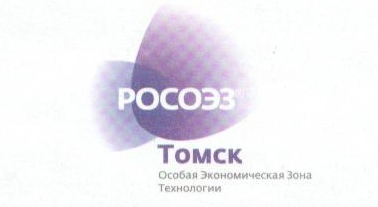
Today, nobody would be surprised by hearing "OK Google" and watching people talk to their mobile assistants. Did it seem possible a decade ago? Artificial Intelligence technologies became part of our daily life just recently. They are mostly aimed for communication with users, while language is the main communication tool. So, now linguists all over the world master a new language pair: from AI to Human. Lingvista does not stand aside from the modern trend: we help AI recognize characters and translate correctly; edit and proofread machine translations as requested by foreign companies.
Everybody knows how Google Translate works. The service translates phrases word for word, compiles them to sentences and pronounces them out loud. Such translation can sometimes have no sense at all. However, it is able to solve certain tasks successfully: simple level communication in a foreign country, an email or a website translation for the sake of getting the main idea. The technology makes progress. Now it is possible to recognize text through smartphone camera. A really useful option in case you need to understand text written in a foreign language offline, just seeing it before you, when you may not be able to type hieroglyphs, Arabic script or Greek letters. And it's only part of the story.
Developers are busy creating really smart machine translation engines. In the future, they will possibly be able to write correct texts in a natural way, as humans do. Machines need to be taught to do this, which will not happen without human guidance. For more than a year, Lingvista has been working on machine translation editing together with a big American company.
In such projects, translation is done by AI, while editing, revision and final quality assurance are provided by people. We have been working with the English > Russian language pair, and learned that this is one of the most challenging tasks for machine translation engines. The point is, that Slavic languages differ much from the European ones, because of sentence structure, articles, auxiliary verbs, etc. That's why AI has much to learn from humans. On the other hand, we have already noticed that AI does pretty well in translating technical manuals and legal papers. It's all about accurate word-for-word translation, using glossaries and term bases. However, AI fails to translate marketing materials, ads, fine literature, newspaper articles, subtitles, scripts meant for voice over and many other kinds of text demanding catchy and natural stylistics of a target language. Lingvista editors often need to rewrite such translations completely instead of just improving them with a few corrections. To make such texts sound natural, it is essential to rephrase sentences, use proper synonyms and speech patterns.
There was another request we received from a foreign company: translating a great number of random sentences from various fields, without any context. The only requirement from the client was that translation had to be performed by a living human being. The developer planned to download these translations to AI system for it to recognize human speech patters and later choose more common, spoken phrases instead of literal word-for-word translation.
The next task foreign clients contacted us with was assistance in developing of Optical Characters Recognition technology. We had to take pictures of printed invoices or receipts issued in Russian, and send a batch of them to the customer. This was helpful for AI to improve its characters recognition technology for new languages, such as Russian.
The global trend of shifting everything online proved that AI technologies will continue their rapid development. There are both advantages and disadvantages for the translation industry. Machine Translation is convenient for processing vast volumes in a short period of time, it is able to handle technical and legal translations decently. In the meantime, MT is not capable of dealing with stylistics and always needs human editors and proofreaders who will rephrase, find proper words, correct punctuation and add expressive means essential for the Russian language. Perhaps, the times will come when AI will compete with professional human translators. We think it would create a strong dynamic for constant development and service quality improvement. If translation becomes true art, a machine would hardly ever surpass a creative human :)
 We have been collaborating with Lingvista for more than 2 years now. During this period the company has proved itself a reliable partner.
We have been collaborating with Lingvista for more than 2 years now. During this period the company has proved itself a reliable partner.
» Read more Deputy CEO of SEZ TIT "Tomsk", JSC Konstantin V. Kaminsky